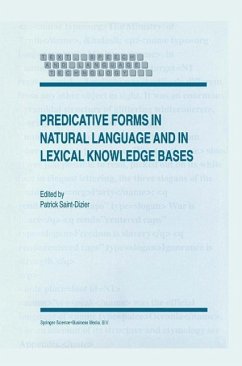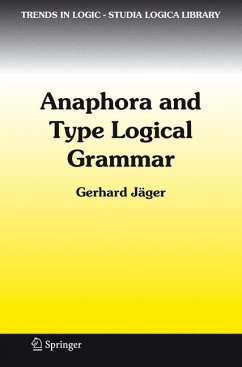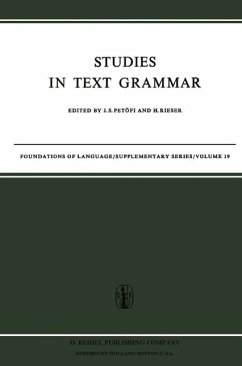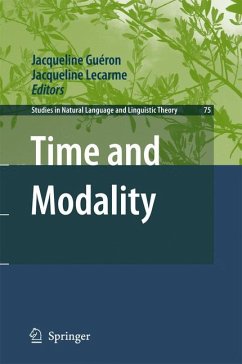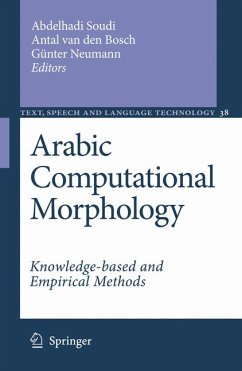
Questions and Answers (eBook, PDF)
Versandkostenfrei!
Sofort per Download lieferbar
72,95 €
inkl. MwSt.
Weitere Ausgaben:

PAYBACK Punkte
36 °P sammeln!
In almost all principled accounts of questions questions are related to the corresponding answers. Zellig Harris (Harris 1978:1), for example, maintains that" ... all interrogative sentences can be derived, by means of the independently established transformations of the language, from sentences which assert that someone is asking about a disjunction of statements which are the relevant possible answers to that interroga tive." This amounts to the claim that a yes-no question such as Will John stay? is derived from I ask you whether John will stay and a wh question such as Who came is derived ...
In almost all principled accounts of questions questions are related to the corresponding answers. Zellig Harris (Harris 1978:1), for example, maintains that" ... all interrogative sentences can be derived, by means of the independently established transformations of the language, from sentences which assert that someone is asking about a disjunction of statements which are the relevant possible answers to that interroga tive." This amounts to the claim that a yes-no question such as Will John stay? is derived from I ask you whether John will stay and a wh question such as Who came is derived from something like I ask you whether A came or B came or ... or X came .. Though in generative grammar interrogatives are not derived from the corresponding declaratives, the semantic interpretation of questions is akin to the syntactic source of questions posited by Harris. Jerrold J.Katz and Paul M.Postal (Katz-Postal 1964:113-117) state a reading rule for Q, the interrogative constituent, which boils down to (1) in the case of yes-no questions and to (2) in the case of wh-questions. (1) Tell me which of the following is true: John will stay or John will not stay. (2) Tell me which of the following is true: A came or B came or ... or X came. Thus, the semantic interpretation of questions makes reference to the set of possible answers represented here by a disjunction of statements.
Dieser Download kann aus rechtlichen Gründen nur mit Rechnungsadresse in A, B, BG, CY, CZ, D, DK, EW, E, FIN, F, GR, HR, H, IRL, I, LT, L, LR, M, NL, PL, P, R, S, SLO, SK ausgeliefert werden.






